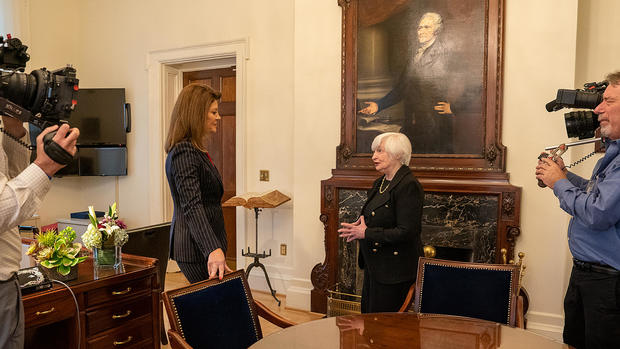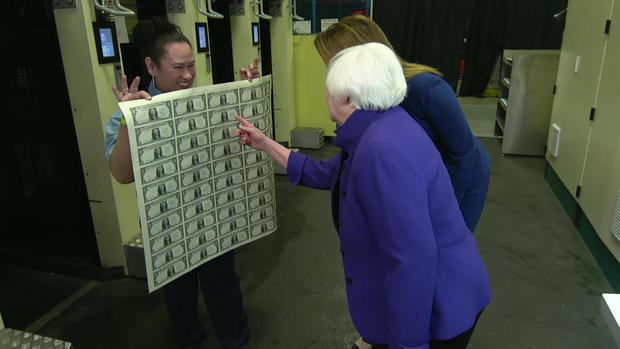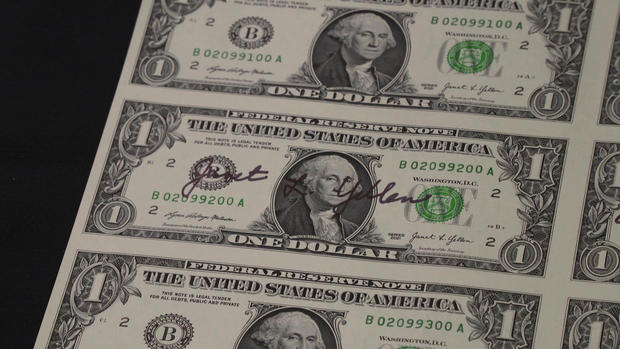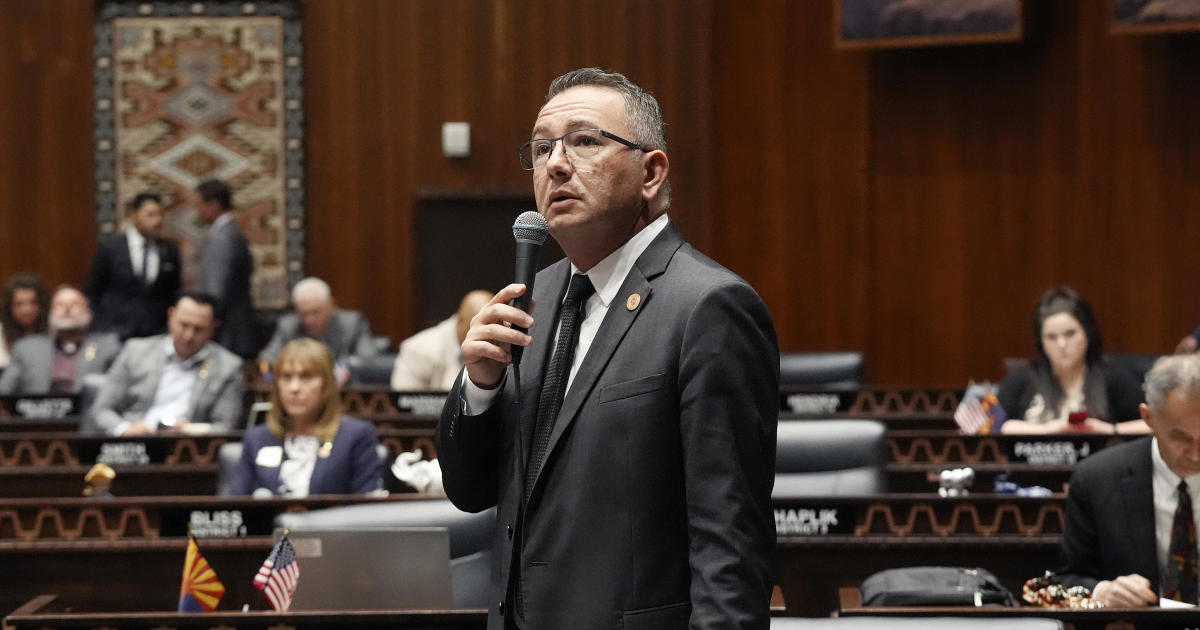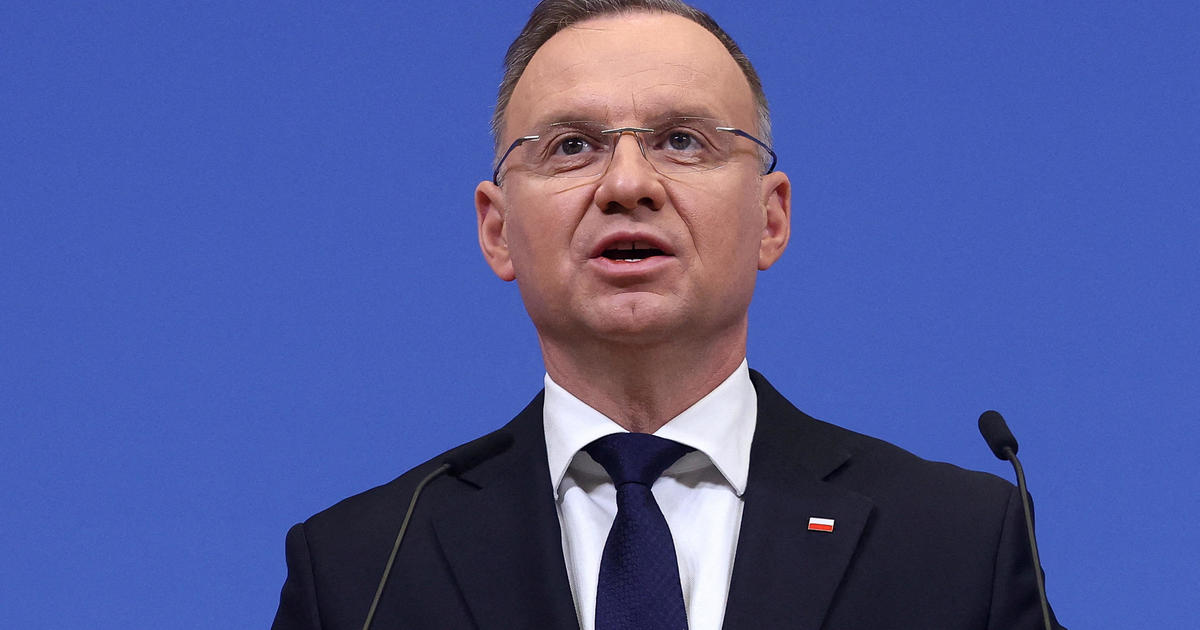Sec. Janet Yellen sees economic growth slowing and lower inflation on the horizon
United States Secretary of the Treasury Janet Yellen says, barring any unanticipated shocks to the global economy, inflation in the United States should continue to recede over the next year.
In a wide-ranging interview with 60 Minutes correspondent Norah O'Donnell, Yellen discussed the state of the U.S. economy, the risk of recession, and the economic implications of Russia's war on Ukraine.
"There's a risk of a recession. But it certainly isn't, in my view, something that is necessary to bring inflation down," Yellen said.
"When I talk to business leaders, they say, 'We're preparing for a recession,'" O'Donnell told Yellen. "So some have said to me, 'Ask the treasury secretary. What does she know that we don't know?'"
"Economic growth is slowing substantially. And businesses see that. Look, we had a very rapid recovery from the pandemic. Economic growth was very high. And there was a surge in hiring, put people back to work. We got people back to work. We closed that gap. We have a healthy labor market. To bring down inflation, and because almost everybody who wants a job has a job, growth has to slow," Yellen said. "We are at or beyond full employment. And so it is not necessary for the economy to grow as rapidly as it has been growing to put people back to work."
A central figure in modern American economics, Yellen is the nation's first female treasury secretary and was the first woman to serve as chair of the Federal Reserve Board, from 2014 until 2018. She is the only person to have led both agencies and head the White House Council of Economic Advisers, which advises the President on domestic and international economic policy.
Yellen told 60 Minutes she intends to continue in her post for the duration of President Joe Biden's administration.
"I'm very excited about the work that we're doing," Yellen told O'Donnell. "It includes things like transforming the Internal Revenue Service into a modern customer-friendly and highly efficient operation and closing what has been a very unfair tax gap in which lower income people pay who mainly are in wage and salary incomes, they pay the taxes that are due."
Secretary Yellen also said the country needs to modernize its tax system. The American tax code can often be confusing, difficult to navigate, and hard for taxpayers to reach. The National Taxpayer Advocate, an independent organization within the IRS, said during the 2021 tax year Americans placed 282 million phone calls to the tax-collecting service, of which only 11% were answered.
Norah O'Donnell traveled with Secretary Yellen to Fort Worth, Texas' Bureau of Engraving and Printing, where the secretary and U.S. Treasurer Lynn Malerba saw their names printed on U.S. currency for the first time. Malerba, a Chief in the Mohegan tribe, is the first Native American to have her name printed on U.S. money.
"I think it shows that women are appropriately advancing throughout all endeavors in the United States, but particularly in business and economics, [where] women have been underrepresented," Yellen said.
Secretary Yellen and Treasurer Malerba were shown the new bills by Charlene Williams, the deputy director and chief operating officer for the Bureau of Engraving and Printing (BEP). Williams has worked for BEP for nearly 35 years and oversees the production of America's paper currency.
"The engraving process is very precise," Williams explained to 60 Minutes Overtime. "When the $1 signatures were prepared for the $1 note for the new secretary and the new treasurer, they were hand-engraved…with tools that are over 100 years old. They're literally handed down from generation to generation."
Williams told 60 Minutes it takes between 22 to 26 weeks to incorporate a new series of signatures onto U.S. currency.
"I started my career back in 1988 and U.S. currency has really changed since I first came to work for the BEP," Williams told 60 Minutes Overtime. "It used to be black and green ink…It's really transformed over the course of time. Our currency is circulated worldwide. We look at how we can evolve and always work to protect hard-earned currency that is carried in people's pockets every day. We end up looking at how we can always incorporate strong security features that protect United States paper currency."
Williams took 60 Minutes on a tour though BEP's Texas facility that prints millions of notes a day and more than half of America's dollars. The rest is printed at BEP's Washington, D.C. location. The country's coinage is produced by the U.S. Mint, another division of the Treasury Department.
In the video above you can follow the multi-step production process BEP undertakes to produce the American dollar. It starts with an order from the Federal Reserve, utilizes intaglio printing, and takes on average four weeks to produce. But even when the notes leave the BEP facility it must go through an additional step before it enters public hands.
"If you want to know how much money we truly have here, it's zero," Williams said. "It's not a dollar 'til it becomes property of the Federal Reserve Board. When they take possession of that currency, that's when it becomes monetized through their system."
The video above was produced by Keith Zubrow and edited by Sarah Shafer Prediger. Keith Sharman contributed to the piece.
